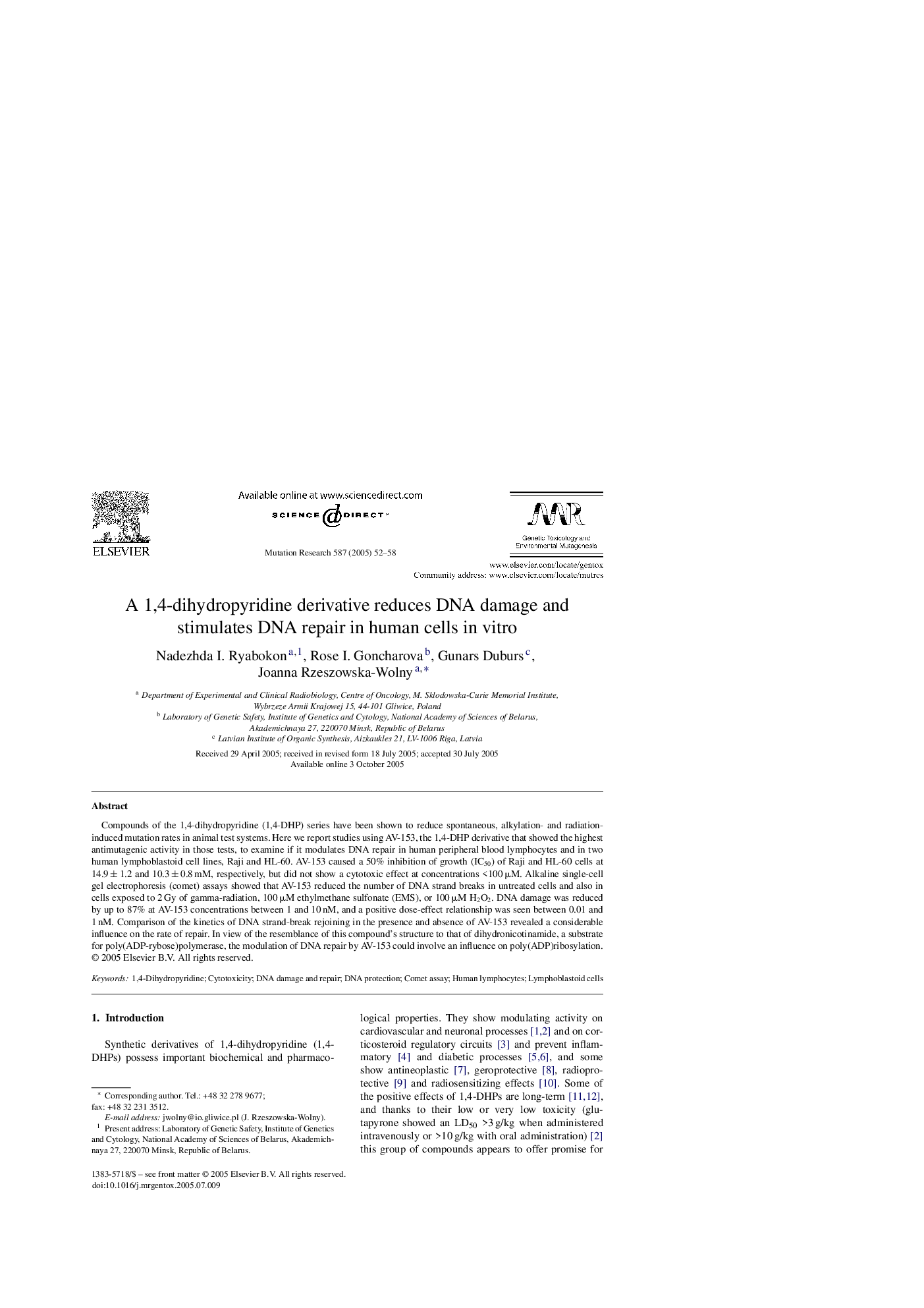| کد مقاله | کد نشریه | سال انتشار | مقاله انگلیسی | نسخه تمام متن |
|---|---|---|---|---|
| 9910083 | 1548648 | 2005 | 7 صفحه PDF | دانلود رایگان |
عنوان انگلیسی مقاله ISI
A 1,4-dihydropyridine derivative reduces DNA damage and stimulates DNA repair in human cells in vitro
دانلود مقاله + سفارش ترجمه
دانلود مقاله ISI انگلیسی
رایگان برای ایرانیان
کلمات کلیدی
موضوعات مرتبط
علوم زیستی و بیوفناوری
بیوشیمی، ژنتیک و زیست شناسی مولکولی
تحقیقات سرطان
پیش نمایش صفحه اول مقاله

چکیده انگلیسی
Compounds of the 1,4-dihydropyridine (1,4-DHP) series have been shown to reduce spontaneous, alkylation- and radiation-induced mutation rates in animal test systems. Here we report studies using AV-153, the 1,4-DHP derivative that showed the highest antimutagenic activity in those tests, to examine if it modulates DNA repair in human peripheral blood lymphocytes and in two human lymphoblastoid cell lines, Raji and HL-60. AV-153 caused a 50% inhibition of growth (IC50) of Raji and HL-60 cells at 14.9 ± 1.2 and 10.3 ± 0.8 mM, respectively, but did not show a cytotoxic effect at concentrations <100 μM. Alkaline single-cell gel electrophoresis (comet) assays showed that AV-153 reduced the number of DNA strand breaks in untreated cells and also in cells exposed to 2 Gy of gamma-radiation, 100 μM ethylmethane sulfonate (EMS), or 100 μM H2O2. DNA damage was reduced by up to 87% at AV-153 concentrations between 1 and 10 nM, and a positive dose-effect relationship was seen between 0.01 and 1 nM. Comparison of the kinetics of DNA strand-break rejoining in the presence and absence of AV-153 revealed a considerable influence on the rate of repair. In view of the resemblance of this compound's structure to that of dihydronicotinamide, a substrate for poly(ADP-rybose)polymerase, the modulation of DNA repair by AV-153 could involve an influence on poly(ADP)ribosylation.
ناشر
Database: Elsevier - ScienceDirect (ساینس دایرکت)
Journal: Mutation Research/Genetic Toxicology and Environmental Mutagenesis - Volume 587, Issues 1â2, 10 November 2005, Pages 52-58
Journal: Mutation Research/Genetic Toxicology and Environmental Mutagenesis - Volume 587, Issues 1â2, 10 November 2005, Pages 52-58
نویسندگان
Nadezhda I. Ryabokon, Rose I. Goncharova, Gunars Duburs, Joanna Rzeszowska-Wolny,